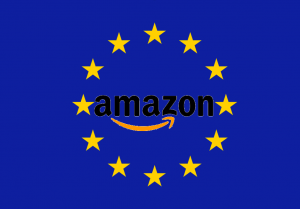Amazon continues to dominate in the US with 50% of e-commerce going through its marketplace but, it is finding resistance abroad in Europe. The super-company retains 22% of Western Europe e-commerce and finds an even greater discrepancy between its clothing department with 35% of the US market and 8% in Europe. European companies have been successful in holding onto their market share through a combination of promoting their own online stores and producing high quality goods and customer service only single industry brick-and-mortar stores can provide. Amazon is not focusing on being a purveyor of specialty goods, instead looking to become an ‘everything’ store with low prices. It is difficult to then compete with European specialty goods providers. I personally find shopping on Amazon.com to be quite the hassle at times with an unwieldy interface, rarely useful recommendation system, and highly limited item viewing options. And if you share in a similar view, know you are not alone in this experience as many EU retail executives have described the Amazon store as a chaotic department store with little control over itself. The result being in 2017 despite a 23% rise in Amazon’s European sales, the company had to take a net loss of $3 billion.
Amazon can also expect new pressures surrounding its control over consumer data, as it appears that Europe has been taking very close notice to the role of big data. The Berlin-based firm Zalando, an online apparel firm, has been partnering with big names like Adidas and sharing their consumer data with other firms within their own self-made network. Similar to Amazon’s data hoarding but, unlike Amazon who withholds consumer data from its third-party users who pay to use the Amazon Marketplace, this partnership allows for multi-firm data sharing.
Now on the legal side of things, it is clear Amazon is facing a multi-front struggle in Europe. Amazon is now facing multiple antitrust/monopoly investigations from the EU, Germany, and Austria over its potential abuse of its position in the economy, withholding data from third-party sellers, and using consumer data without the subject’s consent. Amazon will need to take these investigations seriously as the EU has proven itself willing and capable of punishing large corporations, as evidence by having already fined Google $8 billion for multiple anti-competitive activities.
Is this all a sign of an impending slowdown for Amazon, or are antitrust investigations merely the growing pains of the tech giants are almost destined to endure? That will heavily depend on whether this antitrust pressure can continue as-is. I wonder about this because of the coming reorganization of the EU Commission as its current term of service and administration ends and the potential removal of those spearheading this increased big tech scrutiny, there is indeed a risk. And if those set to regulate the economy are more in favor of big tech, who knows, Amazon has the funds to buy out many of these specialty clothing companies. Why develop and build your own clothing supply chains and brands when you can just buy them? And why update your website when you can just make people increasingly reliant on using it, regardless of its inconveniences? Amazon can take losses, it has been doing so for much of its existence. In the grand scheme, $3 billion is not a mass hinderance to this ever-growing behemoth. In the coming years the resurgence of brick-and-mortar stores, an obsession with collecting big data, product specialization, and criminal investigations will begin to provide the European answer to the question: “Exactly how just how big can (or should) Amazon become?”
Sources Used:
https://www.wsj.com/articles/in-europe-amazon-com-remains-out-of-fashion-1525080604
http://fortune.com/2018/09/20/amazon-antitrust-eu-vestager/
https://www.nytimes.com/2018/07/18/technology/google-eu-android-fine.html

